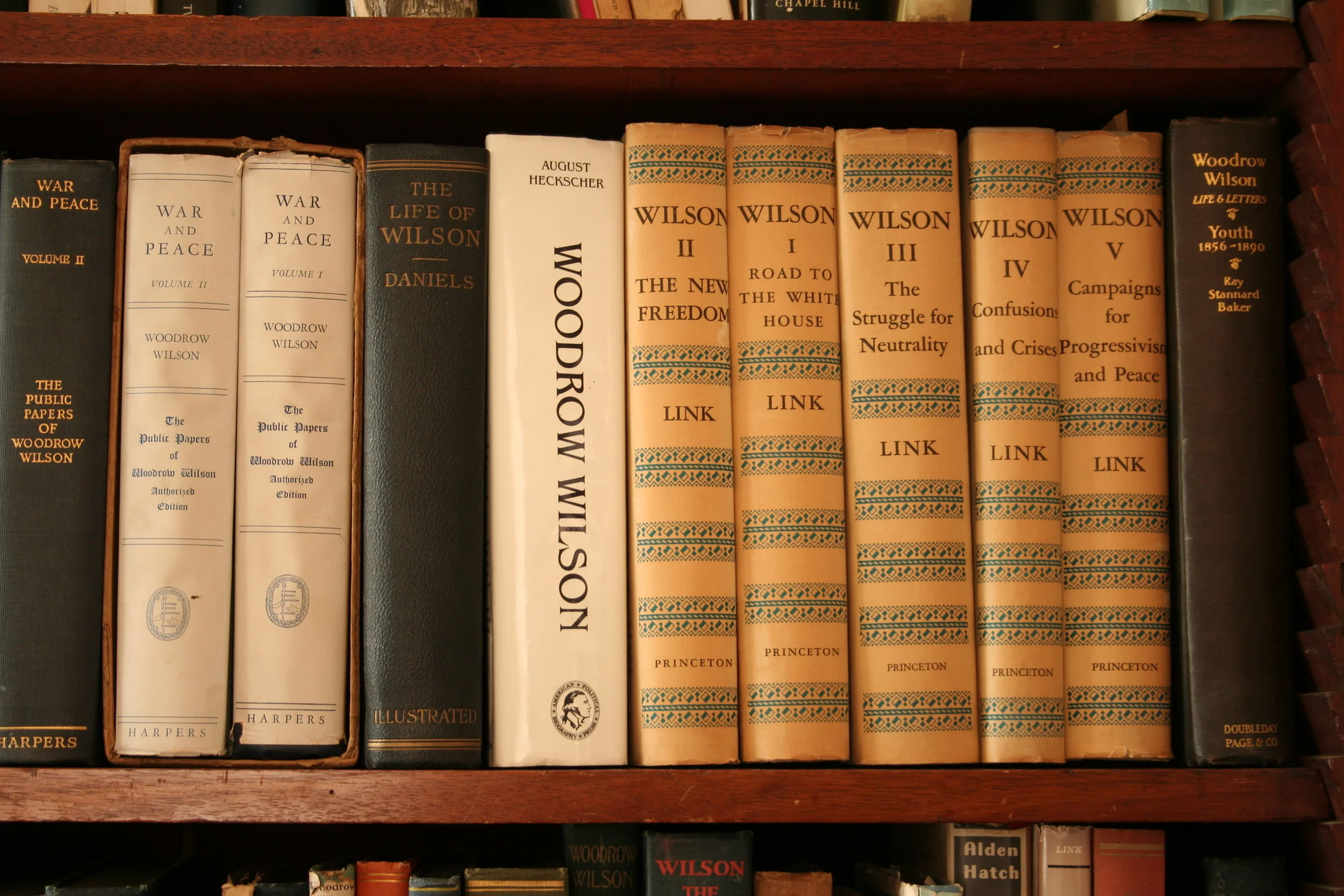Woodrow Wilson Quotes
/Respected as a scholar and writer in his own time, Woodrow Wilson has become famous for some pithy quotes. Oftentimes, though, his original thoughts can get lost in the desire to share something short and sweet. So we thought it was time to share some background and sources for some Wilson sayings you might have heard
Let us know if you have heard any other good quotes from Wilson you would like us to track down. Just a warning though: Woodrow Wilson did not say everything attributed to him, and sometimes real quotes have become garbled or misused.
“If you want to make enemies, try to change something.”
Address to Salesmanship Congress in Detroit, 1916 July 10 –
I have found that I had a great deal more resistance when I tried to help business than when I tried to interfere with it. I have had a great deal more resistance of counsel, of special counsel, when I tried to alter the things that are established than when I tried to do anything else. We call ourselves a liberal nation, whereas, as a matter of fact, we are one of the most conservative nations in the world. If you want to make enemies, try to change something. You know why it is. To do things to-day exactly the way you did them yesterday saves thinking. It does not cost you anything. You have acquired the habit; you know the routine; you do not have to plan anything, and it frightens you with a hint of exertion to learn that you will have to do it a different way to-morrow.
"The seed of revolution is repression."
State of the Union Address, 1919 December 2 –
There can be no settled conditions leading to increased production and a reduction in the cost of living if labor and capital are to be antagonists instead of partners. Sound thinking and an honest desire to serve the interests of the whole nation, as distinguished from the interests of a class, must be applied to the solution of this great and pressing problem. The failure of other nations to consider this matter in a vigorous way has produced bitterness and jealousies and antagonisms, the food of radicalism. The only way to keep men from agitating against grievances is to remove the grievances. An unwillingness even to discuss these matters produces only dissatisfaction and gives comfort to the extreme elements in our country which endeavor to stir up disturbances in order to provoke governments to embark upon a course of retaliation and repression. The seed of revolution is repression. The remedy for these things must not be negative in character.
“America is not anything if it consists of each of us. It is something only if it consists of all of us.”
An Address in Pittsburgh on Preparedness, 1916 January 29. Addresses of President Wilson, January 27-February 3, 1916. Page 13 -
We want the spirit of America to be efficient. We want American character to be efficient. We want American character to display itself in what I may perhaps be allowed to call spiritual efficiency—clear, disinterested thinking and fearless action along the right lines of thought. America is nothing if it consists merely of each of us; it is something only if it consists of all of us. And it cannot consist of all of us unless our spirits are banded together in a common enterprise. That common enterprise is the enterprise of liberty and justice and right. Therefore, I, for my part, have a great enthusiasm for rendering America spiritually efficient, and that conception lies at the basis of what seems very far removed from it, namely, the plans that have been proposed for the military efficiency of this
"The ear of the leader must ring with the voices of the people."
Leaders of Men speech given several times. See the Woodrow Wilson Papers, Vol. 6, pages 646-671, for a 1890 June 17 example –
The constituent habit of a people inheres in its thought, and to that thought legislation--even the legislation that advances and modifies habit--must keep very near. The ear of the leader must ring with the voices of the people. He cannot be of the school of the prophets; he must be of the number of those who studiously serve the slow-paced daily demand.
“The history of liberty is a history of resistance.”
Address to the New York Press Club, 1912 September 9. Crossroads of Freedom: The 1912 Speeches of Woodrow Wilson. Page 130. See also the Woodrow Wilson Papers, Vol. 25, pages 118-128
Liberty has never come from the government. Liberty has always come from the subjects of the government. The history of liberty is a history of resistance. The history of liberty is a history of the limitation of governmental power, not the increase of it. Do these gentlemen dream that in the year 1912 we have discovered a unique exception to the movement of human history? Do they dream that the whole character of those who exercise power has changed, that it is no longer a temptation? Above all things else, do they dream that men are bred great enough now to be a Providence over the people over whom they preside?








